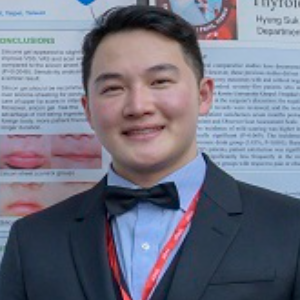Title : Cutaneous eruption as a prognosis indicator for cancer patients treated with EGFR tyrosine kinase inhibitors: A systematic review and meta-analysis
Abstract:
Importance: Clinical symptom is often a direct method to evaluate the treatment effects. With the emergence of new EGFR-targeted drugs in market and its wide utilization, this study aimed to determine whether adverse skin event as a survival indicator for patients treated with EGFR-TKIs.
Method: PubMed, EMBASE, Scopus, trial register and Cochrane Library were searched on November 11, 2018 to identify studies reporting survivals outcomes (OS, PFS). Two investigators performed study selection independently and assessed risk of bias with ROBINS-I method. Data were pooled with random effects models and further subgroup by cancer types. Funnel plot, Egger’s test and Begg’s test were performed for detection of publication bias. Sensitivity analysis was performed by excluding potential outliers.
Results: There were 24 studies identified with 4696 patients included. Skin adverse event was found to be significantly associated overall survival rate (HR, 0.48; 95% CI, 0.43-0.53; P< 0.00001; I2=83%) and progression free survival rate (HR, 0.59; 95% CI, 0.41-0.85; P=0.004; I2=88%). Subgroup analysis suggested among NSCLC patients skin AE was significantly associated with overall survival (HR, 0.39; 95% CI, 0.25-0.60; P<.0001; I2=86%) but not progression free survival (HR, 0.65; 95% CI, 0.29-1.45; P=0.29; I2=95%). Among other cancer types patients, skin AE was significantly associated with overall survival (HR, 0.59; 95% CI, 0.41-0.84; P= 0.004; I2=70%) and progression free survival (HR, 0.61; 95% CI, 0.41-0.91; P= 0.02; I2=80%). Begg’s test and Egger’s test suggested no evidence of publication bias. Sensitivity analysis also showed similar results.
Conclusions: On average, skin eruption groups had 52% lower risk of death and 41% lower risk of progression in cancer patients treated with EGFR-TKIs. This association should be further incorporated with cancer survivorship care planning.
Keywords—skin rash, EGFR, overall survival, progression free survival



